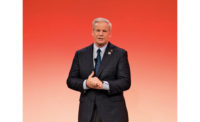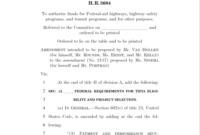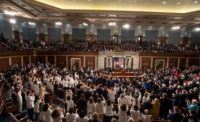Schumer Wants Infrastructure Bill to Have 'Green' Elements
After the flurry of post-election talk from Republicans and Democrats about infrastructure legislation in the new Congress, Senate Minority Leader Charles Schumer (D-N.Y.) is staking out a position. Schumer is underscoring what Democrats see as a “must” to include in that bill: major environmental components.

Schumer said in a Dec. 6 letter to President Trump that “any infrastructure package considered in 2019 must include policies and funding to transition to a clean energy economy and mitigate the risks that the United States is already facing due to climate change.”
Schumer said the package should including a list of provisions, including investing in “resilient transportation, water, waste and sewer infrastructure.” To pay for such work, he proposes “a new resilient communities revolving loan fund.”
Some of Schumer’s green provisions could gain bipartisan support, such as building in disaster-resilient features and tackling the large maintenance backlog in national parks. But others may well run into opposition from Trump and his Capitol Hill supporters, such as cutting methane emissions from energy production.
An infrastructure bill faces big challenges, especially how to pay for a program that could total hundreds of billions of dollars and reconciling the GOP’s desire for private-sector funding and Democrats’ focus on federal spending. Brian Deery, senior director of the Associated General Contractors of America’s highway and transportation division, says of Schumer’s statement, “I think it does complicate the debate on infrastructure.”
Still, Deery is optimistic about chances for the legislation. “Both sides have a stake in being successful in this,” he says. Deery notes that an infrastructure program was a Trump campaign promise and Democrats, for their part, will want to “demonstrate that they can govern,” particularly as they assume the majority in the House in the new Congress.
Schumer’s green infrastructure outline is an opening move in a lengthy debate and negotiations with the GOP.




